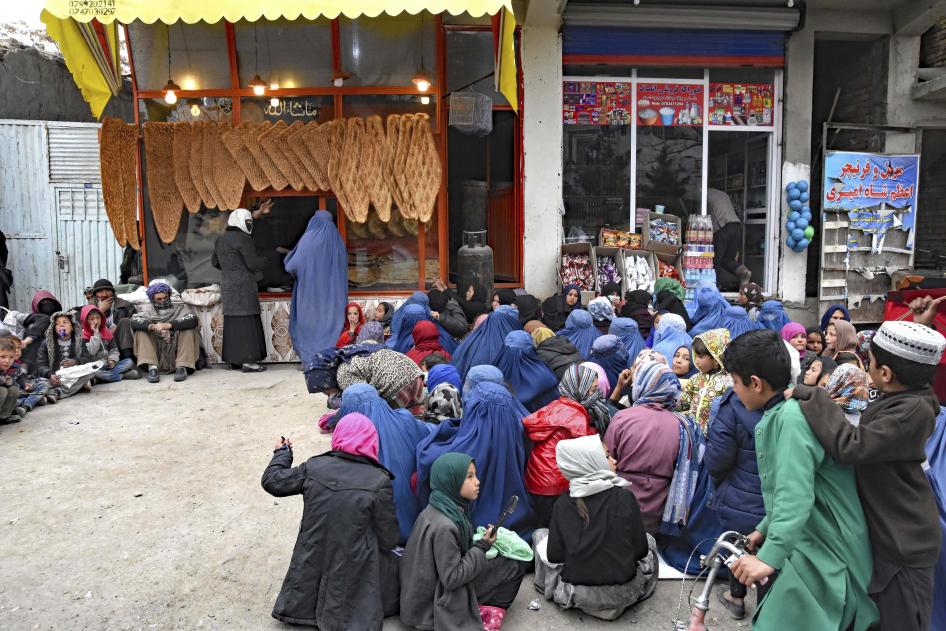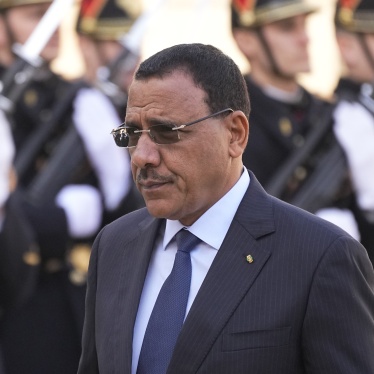(Jakarta) – Taliban authorities, since taking power in August 2021, have broadly imposed rules and policies that deny women and girls their basic rights and crush peaceful dissent, Human Rights Watch said today in its World Report 2023. The Taliban’s blanket disregard for rights has contributed to their global isolation even as Afghanistan’s economic and humanitarian crisis worsened.
In March 2022, the Taliban backtracked on a pledge to reopen girls’ secondary schools, the vast majority of which were closed after the Taliban takeover. They closed universities to women and girls in December. Taliban security forces violently dispersed women’s protests, detaining a number of protesters. The authorities also announced rules requiring women, including TV newscasters, to cover their faces in public and stipulating that male family members would be punished if women violated rules for their movements and dress.
“The Taliban have been more interested in persecuting women and jailing journalists than addressing Afghanistan’s economic and humanitarian crisis,” said Fereshta Abbasi, Afghanistan researcher at Human Rights Watch. “Taliban authorities should fulfill their international legal obligations and permit women and girls to learn, work, and move about freely.”
In the 712-page World Report 2023, its 33rd edition, Human Rights Watch reviews human rights practices in close to 100 countries. In her introductory essay, acting Executive Director Tirana Hassan says that in a world in which power has shifted, it is no longer possible to rely on a small group of mostly Global North governments to defend human rights. The world’s mobilization around Russia’s war in Ukraine reminds us of the extraordinary potential when governments realize their human rights obligations on a global scale. The responsibility is on individual countries, big and small, to apply a human rights framework to their policies, and then work together to protect and promote human rights.
Throughout 2022, Taliban security forces detained journalists and people who posted criticism of the Taliban on social media. The Taliban forcibly disappeared former government security force personnel and alleged fighters and supporters of the armed group Islamic State of Khorasan Province (ISKP). Through April, residents in Nangahar province continued to find bodies, believed to be ISKP detainees the Taliban had secretly executed. Taliban forces beat and detained local residents accused of supporting opposition armed forces, and in some cases summarily executed prisoners.
Afghanistan’s massive economic crisis continued in 2022, underpinned by drastic cuts in donor assistance, an entrenched liquidity crisis, spiking prices for food and other essentials, and foreign government restrictions on the banking sector. Millions of children faced acute malnutrition. More than 90 percent of the Afghan population was food insecure throughout the year. Women and girls were particularly hard hit by the economic crisis because of Taliban restrictions on work and freedom of movement.
ISKP fighters carried out suicide bombings targeting Hazaras and other minority religious groups, killing and injuring hundreds of people.
In Kandahar, the discovery of at least two mass grave sites, believed to date from before the Taliban takeover, led human rights defenders to call for forensic investigations into past abuses, though none had taken place by year’s end.
On October 31, International Criminal Court (ICC) judges announced that the long-delayed investigation by the Office of the Prosecutor into crimes against humanity and war crimes in Afghanistan could resume because there was no evidence to suggest that Afghanistan authorities had or were carrying out genuine national proceedings sufficient to exclude the situation from the ICC’s mandate.









